Home

Hypomenorrhea: When Your Period is Lighter Than Usual
In this Article
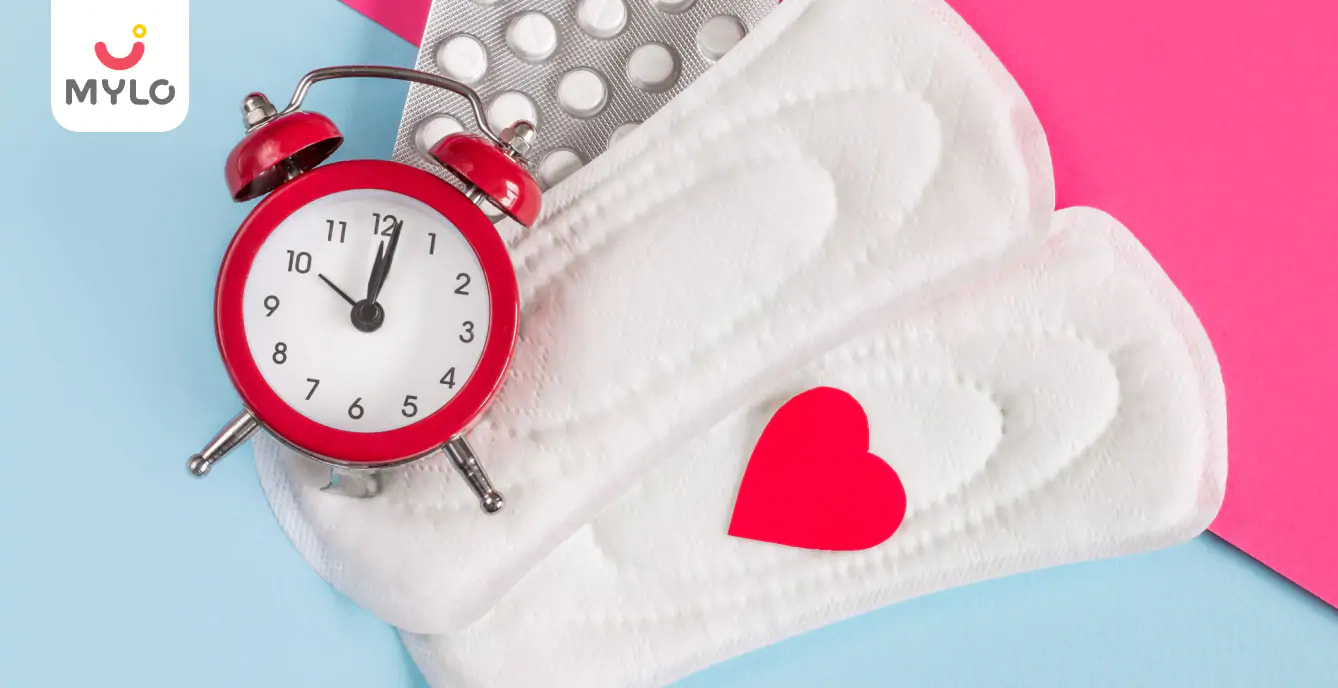
Getting Pregnant
Hypomenorrhea: When Your Period is Lighter Than Usual
Updated on 12 September 2023



Medically Reviewed by
Dr. Shruti Tanwar
C-section & gynae problems - MBBS| MS (OBS & Gynae)
View Profile

Let's face it: periods are no picnic. From cramps and bloating to mood swings and fatigue, it's no wonder we dread that time of the month. But what happens when your period suddenly becomes lighter than usual? Is it a cause for concern, or just another annoying variation in your menstrual cycle? If you've been experiencing hypomenorrhea – the medical term for a lighter-than-normal period – you're not alone.
In this article, we'll explore the causes, symptoms, and treatment options for scanty periods, so you can get back to feeling like yourself again.
Hypomenorrhea Meaning and Symptoms
Hypomenorrhea is a term used to describe menstrual periods that are shorter and lighter than normal. When a woman experiences hypomenorrhea, her menstrual flow may only last a few days, and the amount of blood she loses is significantly less than usual.
The other common symptoms of hypomenorrhea include:
- Abdominal cramps or pain
- Spotting instead of regular bleeding
- Irregular menstrual cycle
- Delayed onset of menstruation
It is important to understand that hypomenorrhea is not the same as amenorrhea, which is the absence of menstruation for three or more consecutive menstrual cycles.
Hormonal Imbalances and Scanty Periods
Hypomenorrhea can be caused by hormonal imbalances in the body. Hormones such as estrogen and progesterone play a crucial role in regulating the menstrual cycle. Any imbalance in these hormones can result in hypomenorrhea.
Some of the common hormonal imbalances that can cause scanty periods include:
- Polycystic ovary syndrome (PCOS)
- Thyroid disorders
- Pituitary gland disorders
- Premature ovarian failure
- Menopause
Women who experience hypomenorrhea due to hormonal imbalances may also experience other symptoms, such as acne, weight gain, hair loss, and mood swings.
You may also llike: Oligomenorrhea: What Every Woman Needs to Know About Irregular Periods
Hypomenorrhea Causes
In addition to hormonal imbalances, hypomenorrhea can also be caused by other factors, such as:
1. Excessive exercise or weight loss
When the body is in a "starvation state" due to low body weight and intense exercise, it can cause hypomenorrhea and even amenorrhea. Therefore, it is important to maintain a healthy body weight and exercise routine to avoid these kinds of health issues.
2. Stress
Extreme stress can interfere with the hormones produced in the body and the way the menstrual cycle functions. Prolonged periods of stress or high stress levels can cause more erratic or absent menstruation.
3. Malnutrition or anemia
Malnutrition can lead to a lack of essential nutrients such as iron, which can cause anemia. Anemia can then cause hypomenorrhea by reducing the amount of blood available for menstrual flow.
4. Use of certain medications
Use of some medications such as birth control pills, IUDs or hormonal therapies can affect the menstrual cycle and cause hypomenorrhea.
5. Structural abnormalities
Structural problems in the genital tract, such as uterine fibroids or polyps or scarring in the uterus may prevent menstrual flow. This can lead to scanty periods.
Some additional causes may include genital tuberculosis and multiple abortions. It is important to identify the underlying cause of hypomenorrhea to determine the appropriate treatment.
Diagnosing Hypomenorrhea
If a woman experiences hypomenorrhea, she should consult her doctor to determine the underlying cause. The doctor will perform a physical examination and may order some tests, such as:
- Blood tests to check hormone levels
- Ultrasound to detect structural abnormalities in the genital tract
- Endometrial biopsy to rule out genital tuberculosis
- Hysteroscopy to diagnose any uterine abnormalities
Based on the test results, the doctor will determine the appropriate treatment for hypomenorrhea.
Hypomenorrhea Treatment Options
The treatment for hypomenorrhea depends on the underlying cause. Some of the common treatment options for hypomenorrhea include:
1. Medical Treatment for Hypomenorrhea
If hypomenorrhea is caused by hormonal imbalances, the doctor may prescribe hormonal therapies, such as birth control pills or hormone replacement therapy. These medications can help regulate the menstrual cycle and restore hormonal balance in the body.
If hypomenorrhea is caused by structural abnormalities in the genital tract, surgery may be necessary to correct the problem.
2. Natural Remedies for Hypomenorrhea
If hypomenorrhea is caused by stress, malnutrition, or anemia, lifestyle changes and natural remedies may help. Some of the natural remedies for hypomenorrhea include:
- Eating a balanced diet rich in iron and other nutrients
- Taking iron supplements
- Reducing stress through exercise, meditation, or other relaxation techniques
- Getting enough sleep
- Using herbal remedies, such as ginger, cinnamon, or fennel seeds
Lifestyle Changes to Manage Scanty Periods
Regardless of the underlying cause, women who experience hypomenorrhea can take some steps to manage their symptoms. Some of the lifestyle changes that may help manage hypomenorrhea include:
- Eating a healthy, balanced diet
- Exercising regularly
- Getting enough rest and sleep
- Reducing stress
- Avoiding smoking and alcohol
When to See a Doctor
Women who experience hypomenorrhea should consult their doctor if they have any concerns about their menstrual cycle. It is particularly important to seek medical attention if hypomenorrhea is accompanied by other symptoms, such as abdominal pain, fever, or nausea.
Conclusion
Hypomenorrhea is a medical condition that can be caused by hormonal imbalances, stress, malnutrition, or structural abnormalities in the genital tract. Women who experience scanty periods should consult their doctor to determine the underlying cause and appropriate treatment. Natural remedies, medical treatments, and lifestyle changes can all help manage hypomenorrhea and restore hormonal balance in the body.
References
1. De Sanctis V, Soliman AT, Tzoulis P, Daar S, Di Maio S, Millimaggi G, Kattamis C.(2022) Hypomenorrhea in Adolescents and Youths: Normal Variant or Menstrual Disorder?
2. Omani Samani R, Almasi Hashiani A, Razavi M, Vesali S, Rezaeinejad M, Maroufizadeh S.(2018) The prevalence of menstrual disorders in Iran.





Medically Reviewed by
Dr. Shruti Tanwar
C-section & gynae problems - MBBS| MS (OBS & Gynae)
View Profile


Written by
Anupama Chadha
Anupama Chadha, born and raised in Delhi is a content writer who has written extensively for industries such as HR, Healthcare, Finance, Retail and Tech.
Read MoreGet baby's diet chart, and growth tips

Related Articles
Related Questions
Influenza and boostrix injection kisiko laga hai kya 8 month pregnancy me and q lagta hai ye plz reply me

Hai.... My last period was in feb 24. I tested in 40 th day morning 3:30 .. That is faint line .. I conculed mylo thz app also.... And I asked tha dr wait for 3 to 5 days ... Im also waiting ... Then I test today 4:15 test is sooooo faint ... And I feel in ma body no pregnancy symptoms. What can I do .

Baby kicks KB Marta hai Plz tell mi

PCOD kya hota hai

How to detect pcos

RECENTLY PUBLISHED ARTICLES
our most recent articles
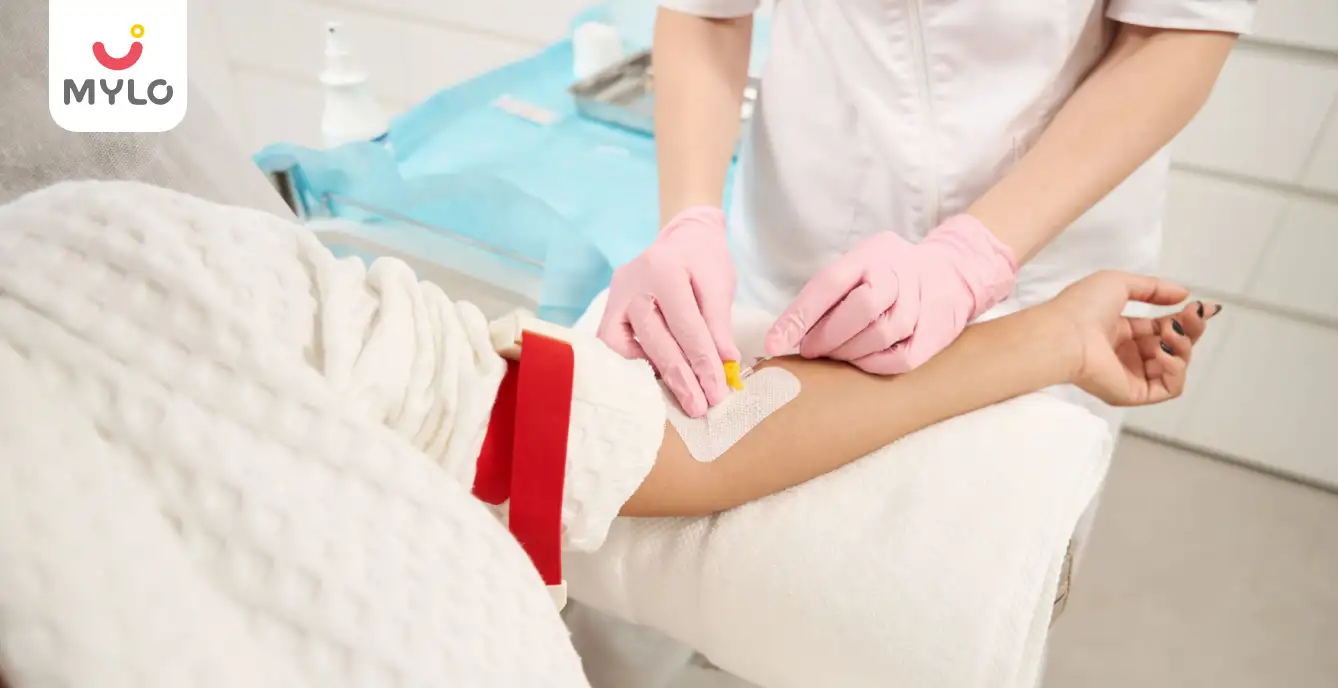
Scans & Tests
Anti Mullerian Hormone Test: The Key to Early Detection of Fertility Issues
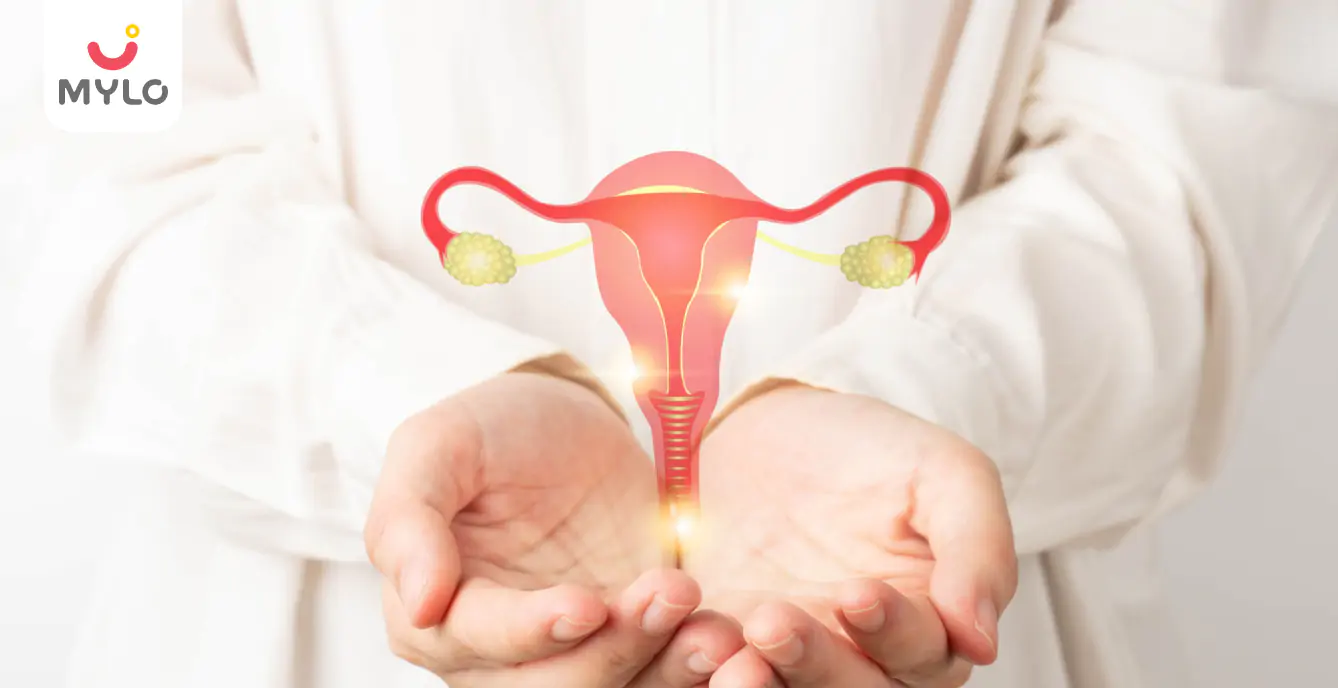
Medical Procedures
Benefits of HSG Test: The Secret to Boosting Your Chances of Getting Pregnant
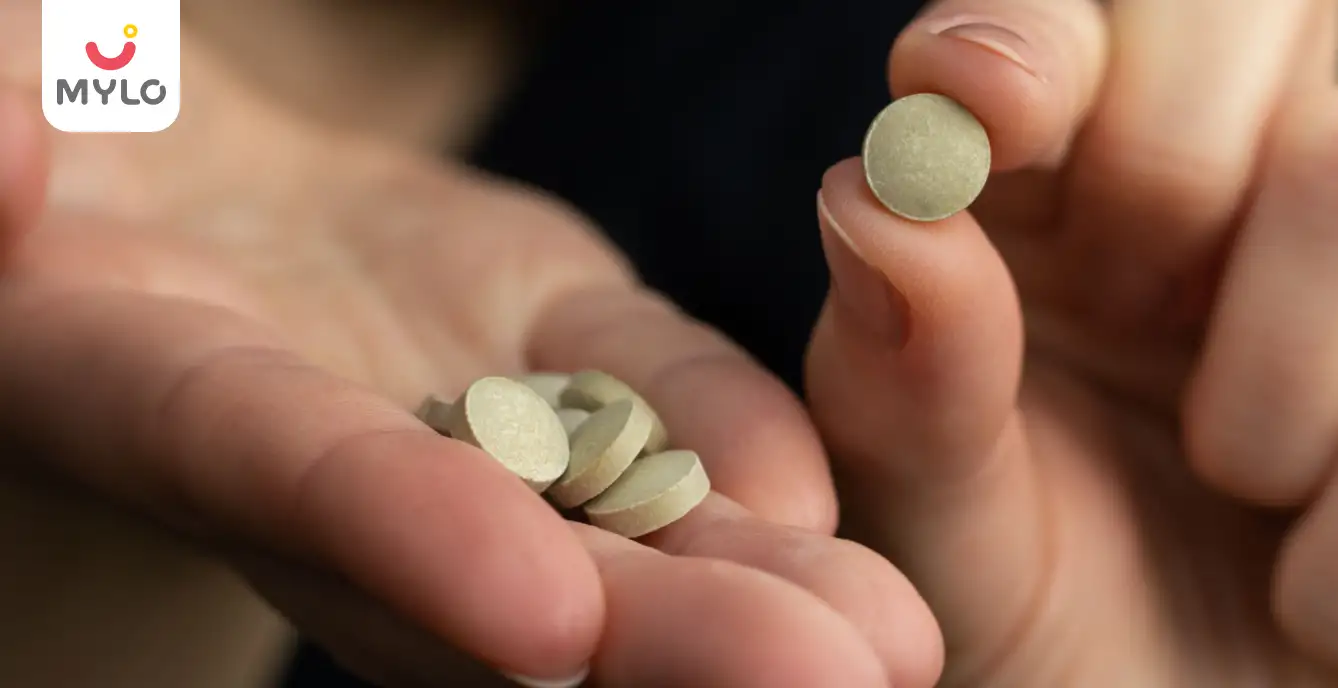
Reproductive health
Deviry Tablet Uses: How to Maximize The Benefits for Your Reproductive Health
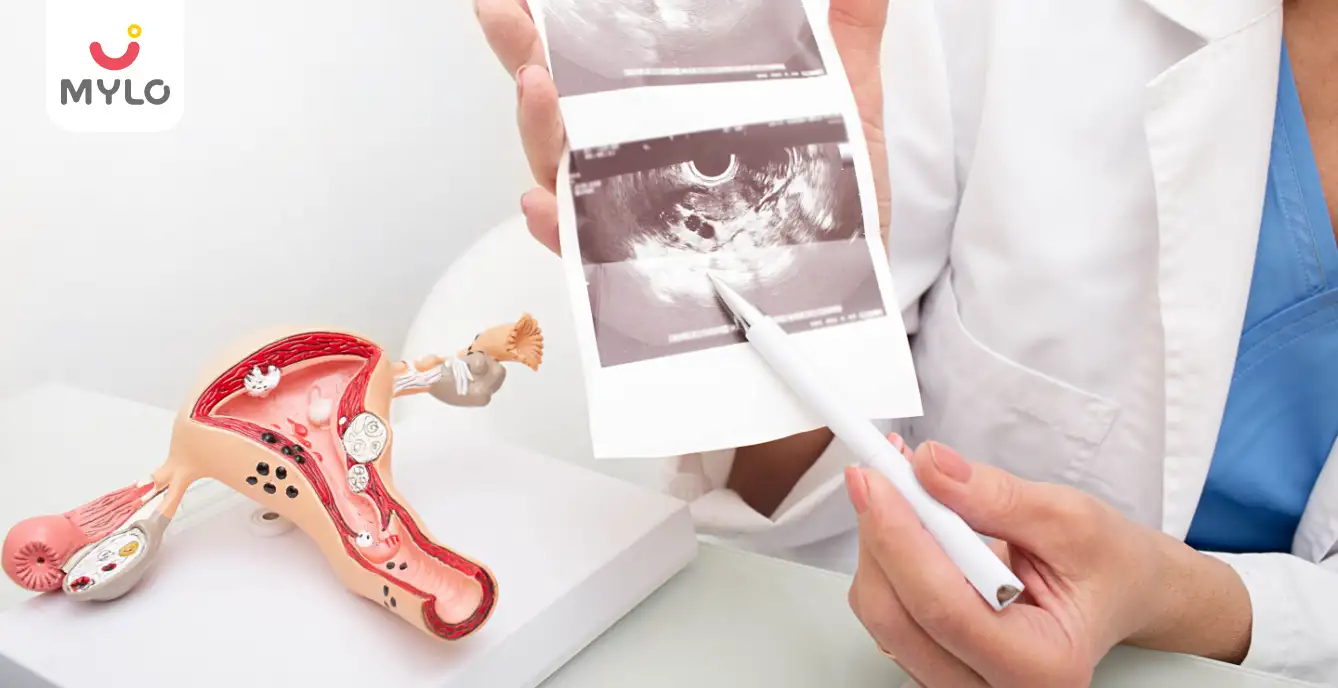
In Vitro Fertilization (IVF)
Endometrial Thickness for IVF: The Ultimate Guide to Successful IVF Outcomes
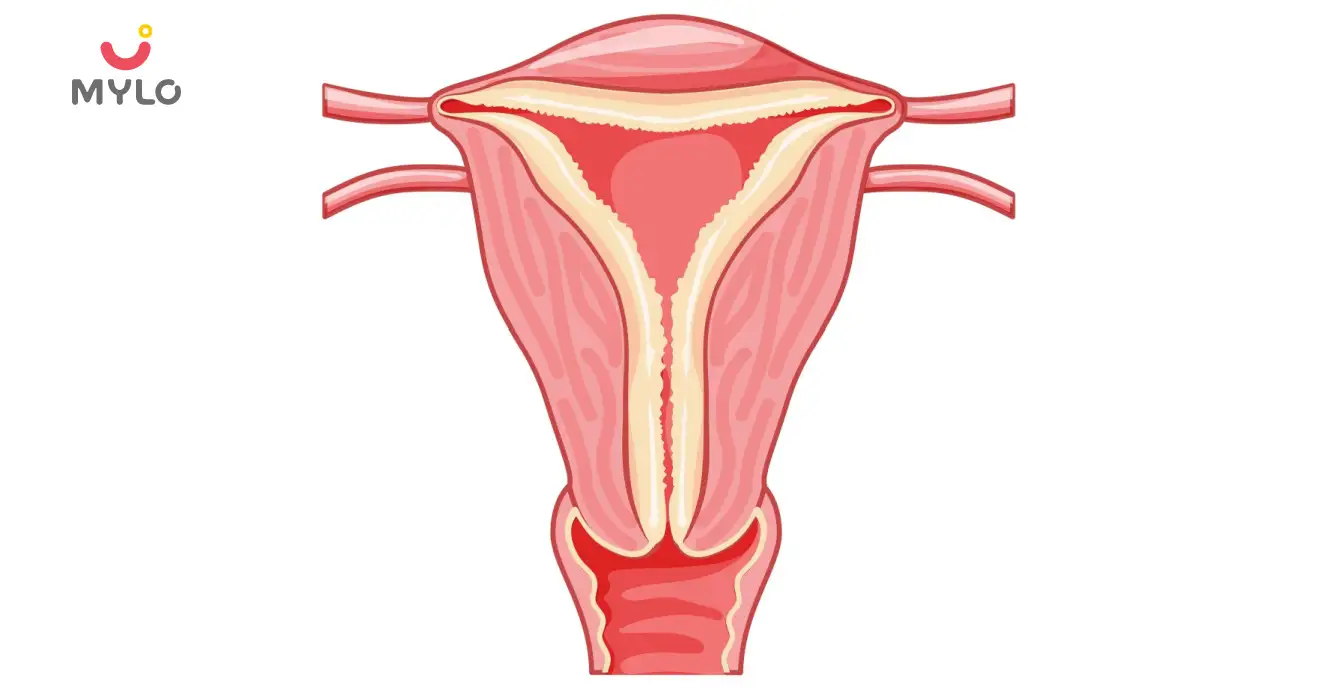
Fertility
Normal Endometrial Thickness: A Key Indicator of Female Fertility
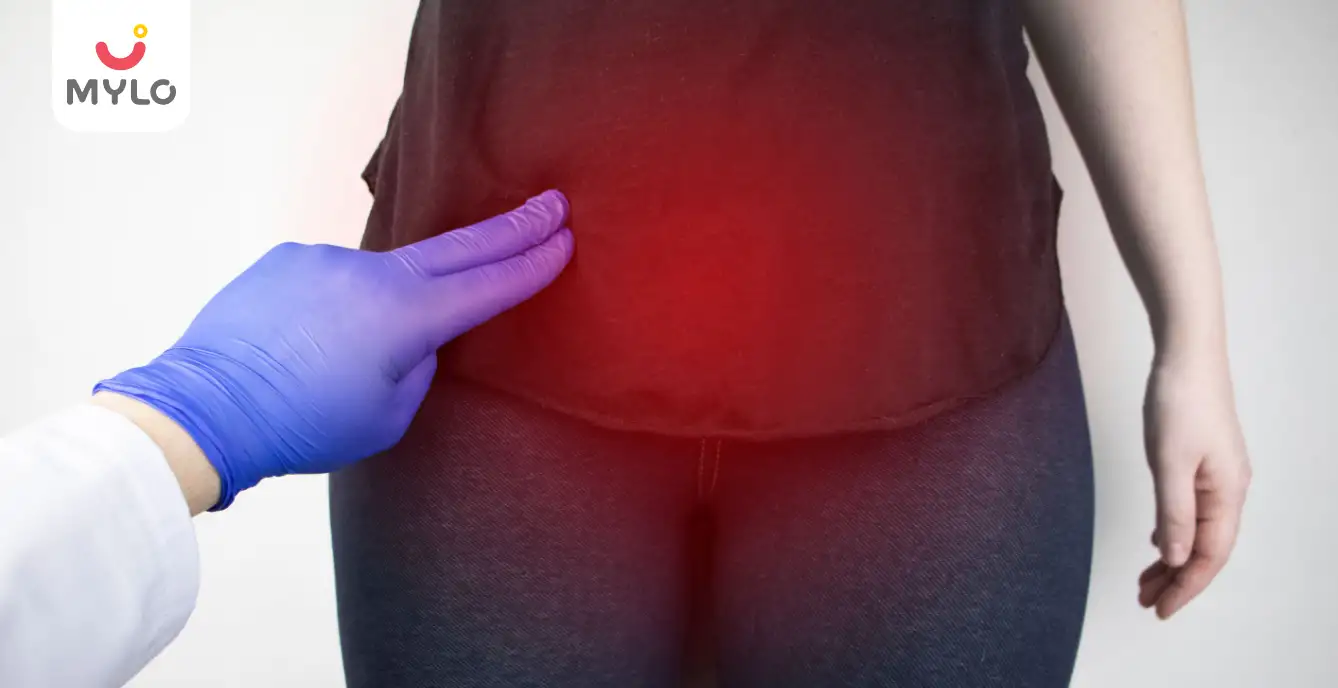
Fibroids
Uterine Artery Embolization: A Non-Invasive Solution for Fibroids
- Deviry 10mg for Menstrual Disorders: Is It the Right Choice for You
- Hyperprolactinemia: How High Prolactin Levels Can Affect Your Chances of Conception
- Myomectomy: A Comprehensive Guide to Uterine Fibroid Removal Surgery
- The Hormonal Dance: Understanding Which Hormones Regulate Menstrual Cycle
- 7 home remedies to cure cough and cold in infants
- How to Increase Endometrial Thickness: Your Guide to Science-Backed Tips
- Endometrial Scratching: The Ultimate Guide to Meaning, Benefits and Impact on Conception
- The Ultimate Guide to Buying a Baby Bath Tub for New Parents
- Strawberry in Pregnancy: Why Should This Fruit Be on Your Pregnancy Platter?
- Benefits of Wearing a Pregnancy Belt Before Delivery
- PCOS Treatment in Homeopathy: The Ultimate Guide to Natural Remedies
- Manjistha: Ayurveda's Best-Kept Secret for Health and Beauty
- Metformin for PCOS: How This Medication Can Help Regulate Hormonal Imbalances
- 5 Tips on How to Get Pregnant When You Are Fat


AWARDS AND RECOGNITION

Mylo wins Forbes D2C Disruptor award

Mylo wins The Economic Times Promising Brands 2022
AS SEEN IN
















- Mylo Care: Effective and science-backed personal care and wellness solutions for a joyful you.
- Mylo Baby: Science-backed, gentle and effective personal care & hygiene range for your little one.
- Mylo Community: Trusted and empathetic community of 10mn+ parents and experts.
Product Categories
baby carrier | baby soap | baby wipes | stretch marks cream | baby cream | baby shampoo | baby massage oil | baby hair oil | stretch marks oil | baby body wash | baby powder | baby lotion | diaper rash cream | newborn diapers | teether | baby kajal | baby diapers | cloth diapers |




